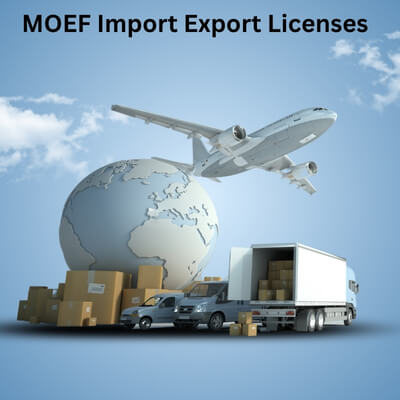
If you're planning to import or export items that fall under environmental regulations in India—like used electronics, plastic waste, chemicals, or hazardous goods—you’ll likely need a MOEF import export license.
The Ministry of Environment, Forest and Climate Change (MOEF&CC) regulates this space tightly to ensure sustainable trade practices. But the application process can be tricky, especially for new businesses or startups. One small mistake can lead to delays, rejections, or even legal trouble.
In this article, we break down the top 10 most common mistakes people make when applying for a MOEF import export license—and how to avoid them.
1. Not Checking Whether MOEF Clearance Is Actually Required
Many businesses wrongly assume that if they have a DGFT (Directorate General of Foreign Trade) license, they don’t need MOEF approval. But for certain goods—especially e-waste, plastic scrap, hazardous substances, and used machinery—MOEF clearance is mandatory.
✅ Pro Tip: Always check the latest MOEF guidelines and notifications for your product category.
2. Incomplete or Incorrect Documentation
The MOEF application process is heavily documentation-based. Missing certificates (like Form 6, Basel Notification compliance, or Pollution Control Board approvals) is a frequent reason for rejection.
✅ What You Need:
3. Submitting Outdated Formats or Forms
MOEF occasionally updates their forms and submission formats. Submitting outdated versions or using old formats can get your application instantly rejected.
✅ Stay Updated: Regularly check the MOEF portal or subscribe to industry updates to stay on top of changes.
4. Lack of a Clear Waste Management Plan
If you're importing recyclable or hazardous goods, you must provide a detailed waste management or recycling plan. This is not optional—it’s part of the sustainability assessment.
❌ Mistake: Vague or missing plans.
✅ Fix: Partner with an authorized recycler or agency and include formal agreements.
5. Ignoring State Pollution Control Board (SPCB) Approvals
Some applicants mistakenly think MOEF clearance alone is sufficient. But depending on the product and location, you may also need SPCB authorization.
✅ Action: Coordinate with both MOEF and your state’s SPCB before finalizing imports.
6. Incorrect HS Code Declaration
Misdeclaring your product’s Harmonized System (HS) Code is a big no-no. It can lead to customs delays or regulatory flags.
✅ Tip: Consult a customs expert to verify the correct HS code and corresponding MOEF classification.
7. Not Using the Online MOEF Clearance Portal Properly
MOEF has digitized the clearance process through its PARIVESH portal, but many users still upload wrong file formats or miss required fields.
✅ Tip: Follow the user manual, and keep documents ready in the correct formats (PDF, max file size, etc.).
8. Lack of Technical Knowledge in Filing
Many businesses delegate the task to junior staff without legal or environmental compliance experience, resulting in avoidable errors.
✅ Solution: Either hire a compliance expert or use a platform/tool that automates MOEF compliance workflows.
9. Assuming Fast Turnaround Times
Some applicants expect a license within a week. In reality, MOEF approvals can take 15–45 days or more, especially if queries are raised.
✅ Tip: Apply well in advance of shipment timelines and factor in buffer time.
10. Not Following Up After Submission
This is the biggest mistake. Many applicants submit the license request and then go silent, not tracking updates or responding to clarifications.
✅ What to Do:
Getting your MOEF import export license doesn’t have to be a bureaucratic nightmare—if you prepare well, avoid the common pitfalls, and stay proactive.
If you're unsure about your eligibility or application status, consult a compliance expert or consider using automation tools that streamline the licensing process.
To learn more about MOEF import export license in India, we recommend you to visit Metacorp as it solves legal and compliance issues of new and established businesses.





We are the pioneers in offering environmental consulting services to our patrons, giving us the first mover advantage & keeping us ahead of our competitors.
Very experienced in filing, monitoring & submission of CDSCO Compliances, Drugs Manufacturing & sale guidelines, Environmental Impact Assessment, AERB consulting services, Pollution Control Board CTE & CTO Advisory Services, Waste Management Authorization from State Pollution Control Boards, Fertilizers & Insecticides Manufacturing, Wholesale & Import Compliances
